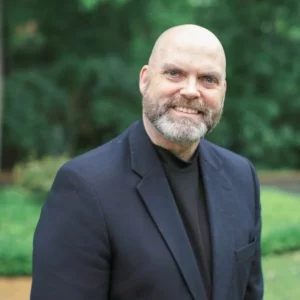Rejoice in the Lord always. I will say it again: Rejoice! Let your gentleness be evident to all. The Lord is near. Do not be anxious about anything, but in every situation, by prayer and petition, with thanksgiving, present your requests to God. And the peace of God, which transcends all understanding, will guard your hearts and your minds in Christ Jesus. Philippians 4:4-7
This is our primary text for Sunday’s message (we’re talking about how to pray in a pandemic) but it has become much more than that for me lately. Paul’s word has become a challenge. Do not be anxious about anything, he says.
Anything.
I don’t know about you, but I feel a little like my nerves have been held together by duct tape for a while now. I think if I were to accomplish that one line of scripture, my brain might collapse. Or I might sleep for a month. I’m not even sure what would happen. Right now, I’m trying to think of a time I didn’t have some low-level anxiety brewing beneath the surface. Have I ever been completely non-anxious? Like … completely? Have you?
I wonder what would happen to my faith if I took that one line from Paul seriously, if I went after it with everything in me. For starters, I suspect my faith would mushroom and my confidence in God’s leadership would go through the roof. All my niggling little health issues would disappear. Surely my relationships would improve. I wonder what would occupy my brain (would I rejoice in the Lord always?)?
Do not be anxious about anything. Lord, pick me for that project.
The promise on the other side of that, according to Paul is a kind of peace that doesn’t require all the dots to line up according to the comforts of my feeble brain (or yours). We get a peace that is okay with questions and ambiguities. We get a peace that trusts God’s wisdom and truth even if that means admitting he’s smarter than us. Non-anxious living by Kingdom standards requires me to rest in a higher knowing that doesn’t abide by the rules of human logic.
Do not be anxious about anything.
These days, that’s quite a leap. Listening to all the voices, most of them with competing claims and recommendations, has made leadership nothing if not anxious. Just this week, it all seems to have ramped up. Our President made a statement on Friday all but demanding that churches reopen this weekend. Meanwhile, at least in my denomination, the guidelines don’t allow for that. Leaders reiterated their recommendation that churches remain closed until June 22. On social media this morning, everyone is weighing in. Lots of anxiety-stirring comments. Add that to all the articles we’ve read, conversations we’ve had with medical professionals and documentaries we’ve watched, and whew! Its a lot.
Do not be anxious about anything. Does that even include pandemics, Paul? And politics? Or the politics of pandemics?
The answer is yes, though it is a hard “yes” to accept, because it requires so much more healing and hearing than most of us have energy for. It requires us to dig down beneath comments and people and politics and circumstances and all our feelings and opinions about all those things to some deeper soil beneath where anxiety as a besetting sin is rooted.
I’ll wait while you read that last sentence again.
And even while we’re digging down to the root of our anxious nature, Paul teaches us that the critical second half of wholeness doesn’t end with rooting out our own root causes but also learning the voice of God, so we’re listening to a higher wisdom than the cultural noise around us. That takes time and practice. But that, Paul says, is where the real peace lies. It is in the ability to rest our hearts and minds in the care of Christ even while we read and research, so we’e not tossed around like so much salad by all we hear.
Learning to listen to the Spirit? That’s hard work. What we’d rather do (because its easier) is find some external thing or person to which we can point and say, “If that or they would just stop-change-fix-be-different, then I’d be fine!” We want the world to adjust so we can be at peace. Or we want answers to all our unanswered questions, believing that reasonable answers will give us peace. And the confusing thing is, answers do give some sense of peace just often enough for us to believe they have that power every time.
But they don’t. If answers could give peace, then answers would be god. Or the other person whose behavior you want to fix becomes a potential god. Or the changed circumstance becomes god. Or worse, we become god. If peace can only happen when the world orients around me and my needs, now I’m god. Is that what we want?
This kind of anxiety Paul is talking about is not circumstantially rooted. It is not anxiety about this thing or that thing but anxiety as a default setting of our fallen nature.
Healing a besetting sin requires us to begin with seriously and deeply questioning our own brokenness. What causes anxiety to rise up in me? Is it my own trust issues? Where does that come from? Why don’t I trust others? Why don’t I trust God? Why do I need to be able to trust a person in order to be at peace in my own spirit or in that relationship? Where did all this begin in my life?
(Side note: don’t stop there, with that last question, because besetting sins go deeper than childhood junk; getting at them means rooting out my motivations, not just my memories.)
Is it possible that I don’t trust people or God because I don’t trust myself? Am I always honest with myself? Or am I not always honest in my dealings? What unholy or selfish agendas am I operating out of? Is this about my need to control circumstances or people? Do I become anxious when people don’t do it (whatever “it” is) the way I want them to? Do I lose sleep over things I can’t control?
Is my anxiety a product of my desire to be god?
Even while we’re digging down to the root motivations beneath our anxious nature, Paul teaches us that the critical second half of wholeness is learning the voice of God. It isn’t enough to stop the “anxious.” Jesus taught us that delivering the demon out of the house without replacing it is a dangerous thing. Nature abhors a vacuum. The other half of stifling anxious voices is turning up the volume on the voice of God. That takes time and practice. And patience. It is a long obedience but the payoff is huge. The benefit is the ability to hear and accept a wisdom that is higher than our understanding. That, Paul says, is where the real peace lies. It is in the ability to give our hearts and minds over to Jesus, to let him guard them, so that both feelings and thoughts are safely resting in the care of Christ even as we sift through all that comes our way.
In the midst of another conversation, Paul finished a thought with this: “I think I too have the Spirit of God” (1 Corinthians 7:40). I don’t think this was Paul proclaiming himself god by saying he had the right answer. I’m not even convinced he needed an answer to bring peace to the situation they were debating. Actually, I think that line was his way of saying, “You might disagree with me, and I can hear you, but I’m not willing to give up years of honing the practice of the presence and voice of God in my life in order to validate your opinion. And I will not minimize this long practice by minimizing what comes out of it. I need to give honor to my own spiritual discernment honed by years of listening and communing with the Holy Spirit by voicing what I’ve heard.”
In other words, there comes a time when in humility we take authority over what we’ve been given as a gift from God — namely, the ability to commune and converse with him.
In still other words, in matters of discernment the Holy Spirit gets a voice, too. But to invoke that voice, we must root out the competing voices even as we practice his presence and learn his voice. And this is not a quick fix but a long obedience.
This week, that seems like a good word. In weighty matters, the Holy Spirit gets a voice, too. As we listen to the official and unofficial voices swirling around the internet — all stirring the political waters as we debate the trajectory of this virus and how that plays out in church — I want to urge you to listen deeper than the debate. Listen to what those voices are doing within your spirit. Are you hearing the voice of the Holy Spirit, or are you mostly just hearing the swell of anxiety? Does the voice bring peace that passes understanding? Or does it demand that you to lose patience and pick a side so you can have an answer? If the latter voice is louder, if anxiety is what stirs up in you, then hear that as a symptom of something that needs spiritual attention. Go looking for the besetting sin (the underlying cause) and dig down so you can pull that thing up by the root.
Because listen: that thing is your problem. Not the opinion of the President or the opinion of whoever made the latest video you’ve watched or the opinion of your uncle who knows someone who knows someone who has dabbled in infectious disease research. Nope. That thing in you that keeps you from placing your whole trust in God, that makes you crazy when you can’t control what other people do/say/think, that makes you hyper-critical of the world around you and hypo-reflective about your ability to hear from God — that’s where you need to start.
Because friends, if we come out of this thing more anxious, less trusting, more partisan, less dependent on the Holy Spirit, then we will all have been sickened by this virus in ways that strike much deeper than flesh.
Do not be anxious about anything.
Be challenged by that word. And be changed.








